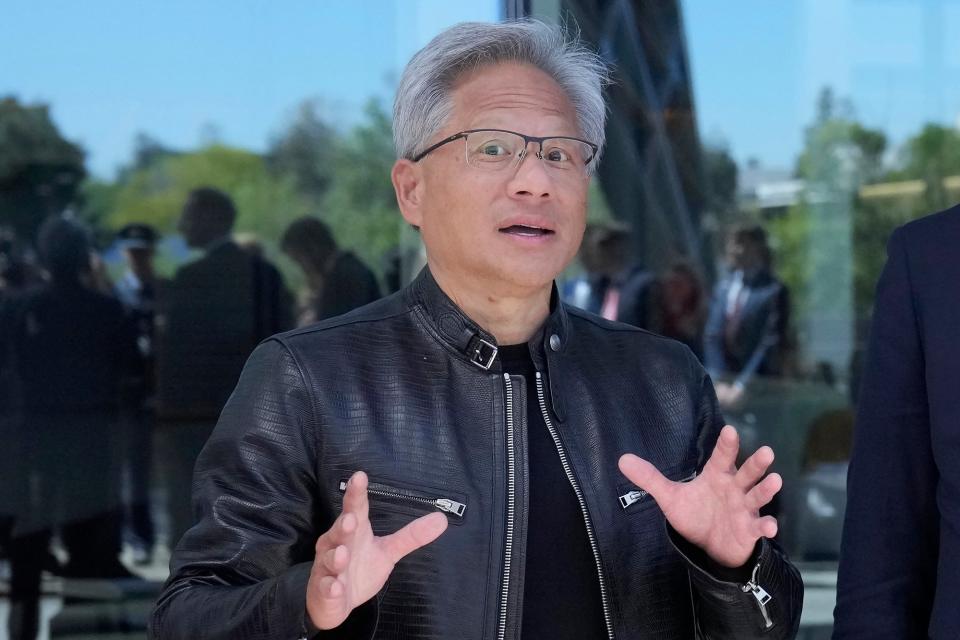Tech war: Huawei races to fill void left by Nvidia in China, with home-grown chips becoming popular components in 'AI boxes'
US-sanctioned Huawei Technologies has emerged as a key supplier of artificial intelligence (AI) chips in China after Washington implemented export curbs on Nvidia's advanced processors, according to industry insiders.
Use of the Chinese company's self-developed 910B Ascend chips have proliferated in various industries across the country through "AI boxes" - all-in-one machines that combine AI chips, industry-specific algorithms and pre-trained large AI models.
Huawei's chips are becoming popular components in these Chinese-made machines, setting up the company to take over a market that has so far been dominated by Nvidia.
Do you have questions about the biggest topics and trends from around the world? Get the answers with SCMP Knowledge, our new platform of curated content with explainers, FAQs, analyses and infographics brought to you by our award-winning team.
Nvidia has designed lower-grade chips tailored for China-based clients after the US in October escalated its export restrictions to ban the shipments of the firm's sophisticated A800, H800 and L40S processors to the country.
But the onslaught of Huawei's Ascend chips has proved challenging for Nvidia in its third-largest market. CEO Jensen Huang said in a conference call earlier this month that the US firm faces "a lot more competition in China now".
Huawei declined to provide sales figures for its AI chips, but according to a speech this month by Zhang Dixuan, head of the firm's Ascend computing business, the Ascend ecosystem now has 40 hardware partners, 1,600 software partners, and 2,900 AI application solutions.
"Huawei is taking the lead in China's localisation drive because of its technological abilities," said Russel Wu, general manager at networking gear start-up TML and previously with Intel in China.
"The AI box provides a ready-to-use solution for entities including small companies and government, letting them cut costs and focus on fine-tuning large model-based services instead of developing models [from scratch]."
Chinese companies are taking advantage of Huawei chips to make AI boxes to meet the rising demand for AI computing from nearly all industries, from telecommunications to finance and healthcare.
Tianjin Sitonholy, a key Nvidia distributor in China before it was added to a US trade blacklist in April, has launched an AI box embedded with Huawei graphics processors and software developed by Chinese company Thunder Software.
Chinese AI start-up SenseTime's co-founder and CEO Xu Li told the Post in an exclusive interview on Tuesday that its generative AI sales are expected to double this year, thanks to the strong sales of AI boxes, which cost from 300,000 yuan (around US$40,000) to over 2 million yuan.
Home-grown chips, including those from Huawei, Cambricon Technologies and Biren Technology, are readily available in the market, according to Xu.

Nvidia CEO Jensen Huang. Photo: AP Photo alt=Nvidia CEO Jensen Huang. Photo: AP Photo>
Huawei's expanding AI chip business was anticipated by analysts. AI boxes are predicted to be a must-have for businesses in China, and the market is set to be dominated by local players led by Huawei, wrote Cao Pei, an analyst at Chinese brokerage Pacific Securities, in a research note published in November.
AI boxes received a boost in China last July when Huawei unveiled a large-language-model training solution tailored for Chinese clients, together with local AI start-ups ModelBest, Zhipu AI, iFlyTek and CloudWalk.
iFlyTek, which is also under US sanctions, last August introduced its Spark Number 1 AI box, which packs Huawei Ascend chips and touts sufficient computing power to support a wide range of AI applications and model training.
"iFlyTek and Huawei have joined forces to tackle the computing-power bottleneck", iFlyTek chairman Liu Qingfeng said at the time, adding that Spark Number 1 was benchmarked against Nvidia's A100 processor, which has been barred from being shipped to China since August 2022, along with the more powerful H100.
Nvidia processors made up 90 per cent of the 500,000 AI chips that were sold in China in the first half of last year, with Huawei controlling just 6 per cent of the market. But the tide is turning for Huawei: at least a dozen Chinese companies have launched AI boxes, and most of them use chips from Huawei.

The headquarters of Nvidia in Santa Clara, California. Photo: Getty Images via AFP alt=The headquarters of Nvidia in Santa Clara, California. Photo: Getty Images via AFP>
Nvidia H20, the best among the US company's tailored-for-China chips, is already selling at a discount compared with Huawei chips, according to a recent Reuters report citing anonymous sources.
Still, the pace of Huawei's ascendancy in China's AI chip market will depend on how quickly it can ramp up production, according to Brady Wang, associate director at research firm Counterpoint.
While the company is also making more mobile chips to support its return to the Chinese smartphone market, producing high-performance AI accelerators and server processors with deep ultraviolet lithography systems is much harder than manufacturing system-on-a-chip products for handsets.
"Huawei would choose to give more juice to its AI chips this year, as that would give the company a leading market position in China against Nvidia," Wang said.
Additional reporting by Kelly Le
This article originally appeared in the South China Morning Post (SCMP), the most authoritative voice reporting on China and Asia for more than a century. For more SCMP stories, please explore the SCMP app or visit the SCMP's Facebook and Twitter pages. Copyright © 2024 South China Morning Post Publishers Ltd. All rights reserved.
Copyright (c) 2024. South China Morning Post Publishers Ltd. All rights reserved.

 Yahoo Finance
Yahoo Finance 